
Athabasca Island holds a charming campground with two sites on a small island.
Athabasca Island
Jasper National Park
Getting to Athabasca Island is along a beautiful Grade I stretch of the Athabasca River. Visitors can put-in at 12 Mile Bridge for a short 3.5 km paddle or lengthen their river travel by opting for put-ins at either Old Fort Point or Sixth Bridge. This trip is not recommended for novice paddlers.
Planning considerations
- Maintained campground: Medium priority
- 3.5 km paddle from 12 Mile Bridge
- 22.3 km paddle from Old Fort Point
- 4 km paddle to takeout at Highway 16 on Jasper Lake
The details
During periods of low water, the island is attached to the mainland, allowing for exploration of the dry channels surrounding the island. Wildlife are often seen in the area. The island is sandy and often boasts a wide beach.
The Athabasca River is very cold, even in mid-summer. While the section paddled to and from Athabasca Island is Grade I, there are some tight curves with potential sweepers and strainers. Moreover, Jasper Lake is often very shallow with many sandbars. It can be difficult to navigate across, as the main channel zig-zags across the lake. It is often difficult to see, especially from a canoe. Many canoeists have capsized on the lake when they ran aground on sandbars. Paddlers should have intermediate paddling skills and be familiar with river travel.
One kilometre beyond the island, the river opens up into Jasper Lake. Paddlers can take out along Jasper Lake where Highway 16 parallels the lake.
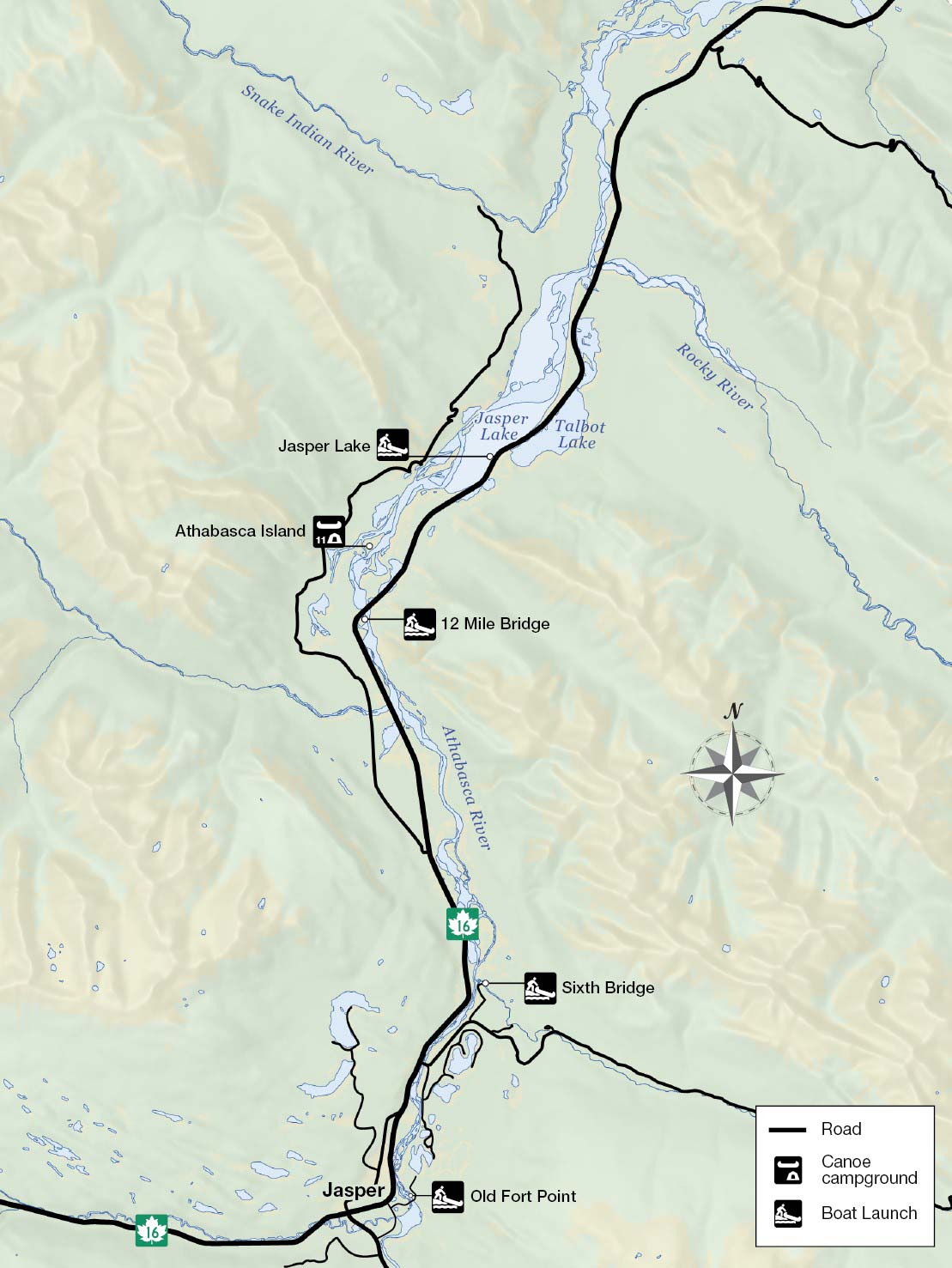
Campground information
The campground is marked with a large, black and white sign with an orange rim. You can land here or on the beach at the downstream end of the island, also marked by a sign. Drag your canoes or kayaks well off the beach, and tie them down if possible, in case the river rises during the night or there is a wind event.
| Campground | Description | # of sites | Toilet type | Food storage | UTM |
|---|---|---|---|---|---|
| Athabasca Island #11 |
A beautiful campground on a small island in the Athabasca River. | 2 | Throne | Lockers | 11U 427733 5879954 |
Fires are permitted at Athabasca Island. There is no firewood at the campsite. Bring your own fire wood.
Clean, drain and dry to prevent the spread of Aquatic Invasive Species
You can prevent the spread of Aquatic Invasive Species (AIS). Before you drive to the Athabasca River, clean, drain, and dry all watercraft and items you plan to put in the water here.
Make clean, drain, dry a habit everywhere you go!
For information: parkscanada.gc.ca/jasper-aquatic-invasive-species
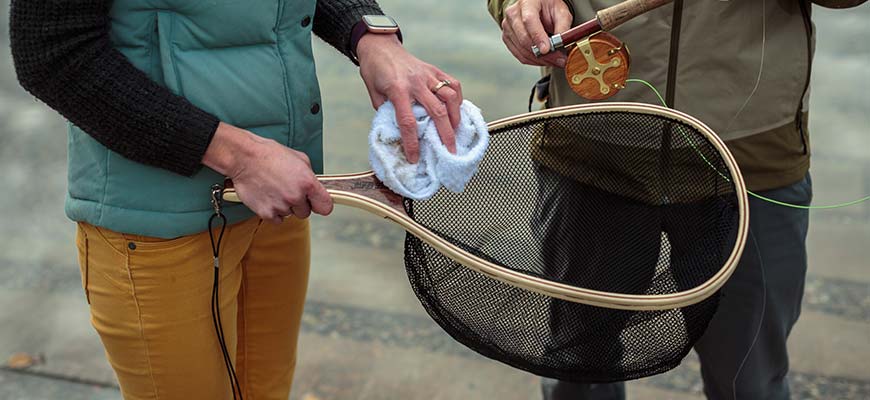
Clean
Clean all mud, sand, plant or animal parts from all items before leaving the shore.
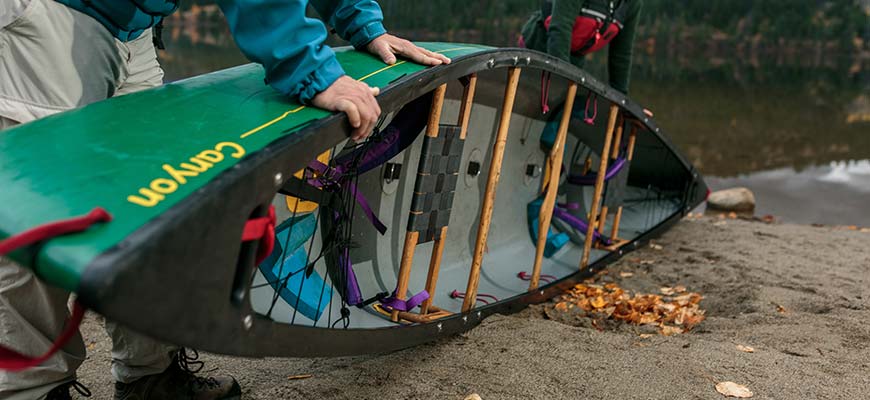
Drain
Drain, onto land, all items that can hold water.
- Invert or tilt items.
- Open all compartments.
- Remove seats if necessary.
- Pull the drain plug if applicable.
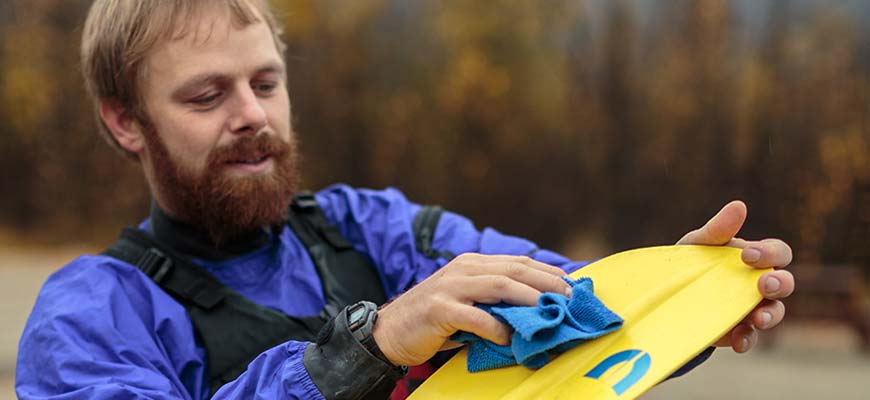
Dry
Dry all items completely before entering any river, pond, lake or stream.
Are you prepared?

Safety is your responsibility
Refer to the Jasper National Park Backcountry Planning Guide:
- descriptions of trail types and campground facilities;
- equipment checklists;
- responsible camping practices;
- safety information.
Before heading out, check trail, weather and road conditions at: parks.canada.ca/jaspertrails.
Maps
| NTS | National Geographic |
|---|---|
| Jasper 83D/16 Snaring River 83E/1 Miette 83F/4 |
Jasper North |
Permits
A backcountry camping permit is mandatory for all overnight trips and can be obtained online at reservation.pc.gc.ca or by calling 1-877-737-3783.
- Date modified :
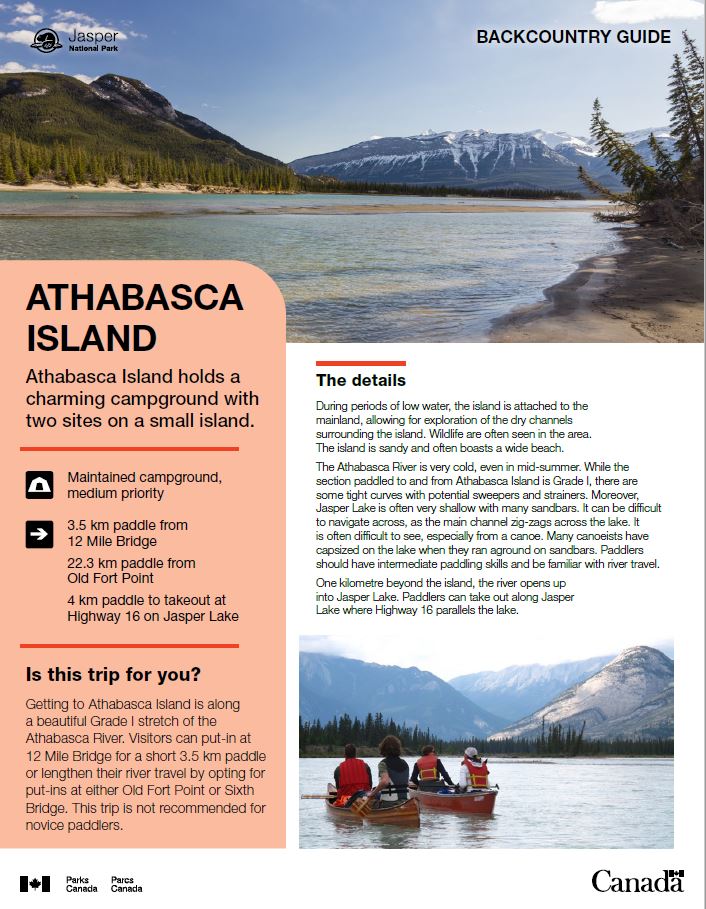 Athabasca Island Backcountry Guide (PDF, 651 KB)
Athabasca Island Backcountry Guide (PDF, 651 KB)